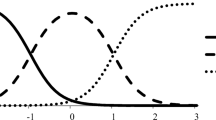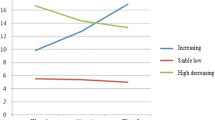Abstract
Background
It is not unusual for researchers to make apparently minor modifications to existing instruments without checking if this alters psychometric properties.
Method
Equivalent items on child mental health from two different versions of the Rutter parent questionnaire were compared: items from the standard version and from a modified version. The parents of 400 children aged 5–7 years were randomised into two groups: each group completed one version of the Rutter as well as an independent measure of psychopathology (the Strengths and Difficulties Questionnaire; SDQ).
Results
The mean psychopathology scores of the two groups were comparable according to the SDQ but differed markedly between the two Rutter versions, principally because of changes in the response categories. Nevertheless, the validity of the two versions of the Rutter was similar as judged from Rutter-SDQ correlations.
Conclusion
Seemingly minor changes in the wording of a measure can have a major impact on mean scores, thereby making it harder to compare or combine the results of studies using the original and the modified measure.


Similar content being viewed by others
References
Collishaw S, Maughan B, Goodman R, Pickles A (2004) Time trends in adolescent mental health. J Child Psychol Psych 45:1350–1362
Elander J, Rutter M (1995) Use and development of the Rutter Parents’ and Teachers’ Scales. Int J Methods Psych Res 5:1–16
Ferri E, Bynner J, Wadsworth M (2003) Changing Britain, changing lives. Institute of Education Press, London
Fogelman K (1983) Growing up in Great Britain. MacMillan, London
Goodman R (1997) The Strengths and Difficulties Questionnaire: A Research Note. J Child Psychol Psychiatry 38:581–586
Goodman R (1999) The extended version of the Strengths and Difficulties Questionnaire as a guide to child psychiatric caseness and consequent burden. J Child Psychol Psych 40:791–801
Goodman R (2001) Psychometric properties of the Strengths and Difficulties Questionnaire (SDQ). J Am Acad Child Adolesc Psych 40:1337–1345
Author information
Authors and Affiliations
Corresponding author
Rights and permissions
About this article
Cite this article
Goodman, R., Iervolino, A.C., Collishaw, S. et al. Seemingly minor changes to a questionnaire can make a big difference to mean scores: a cautionary tale. Soc Psychiat Epidemiol 42, 322–327 (2007). https://doi.org/10.1007/s00127-007-0169-0
Accepted:
Published:
Issue Date:
DOI: https://doi.org/10.1007/s00127-007-0169-0




